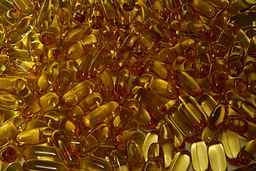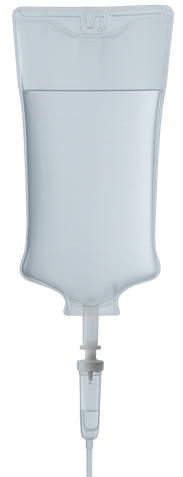|
|
| Image Source |
Those familiar with our work know that we have spent quite a bit of time evaluating the therapeutic outcomes of marine-derived omega-3 fatty acids. Our recent review of the topic has been downloaded and widely circulated amongst healthcare providers and the general public, worldwide. In that review, we covered the types of fish used, how fish oil is made, sustainability issues, bioavailability differences, quality control concerns and much more; including the research comparing omega-3 fatty acid from fish oil and krill oil. You can get the article as a PDF file here.
Just a month after publishing our paper online, a few more studies comparing fish oil and krill oil were published that initially appeared to suggest that omega-3 fatty acids from krill oil may indeed have a slightly better bioavailability than those from fish oil and/or had triglyceride lowering effects similar to fish oil; but after only a month of scrutiny, these studies are exposed as epic failures of how marketing-driven research leads to bad science and confusing outcomes.
First- as a brief review for those who haven’t read our whitepaper. Our position was that the EPA and DHA in krill oil should function in much the same way as EPA and DHA from fish oil- assuming equal amounts of the fatty acid become bioavailable after consumption. The typical claims made by the marketers of krill oil is that, because krill oil omega-3s are delivered as phospholipids (PL, rather than triglycerides), they will have (or have been shown to have) higher bioavailability than fish oil omega-3s. Our whitepaper clearly shows that the studies used by marketers to “prove” such assertions are either not clinically or statistically significant; or are not appropriately designed to make such comparisons. However, the biggest issue is not their failure to prove better bioavailability, or the fact that krill oil appears to be nearly ¼ free fatty acids upon analysis (not all PL as claimed); but the fact that commercially available krill oil products are extremely low in EPA and DHA, while still costing much more than fish oil products (containing much more EPA and DHA). In fact, in the only trial comparing equivalent doses, researchers needed to use 14 krill oil capsules to get the same amount of EPA and DHA as 4 capsules of fish oil.
Read More @ Pointe Institute
Special Podcast by Dr. Ronald Hoffman
Everything you ever wanted to know about fish oil:
- How to choose a good product
- enteric-coated vs. soft gel;
- EPA vs. DHA
- krill vs. fish body-derived;
- natural vs. prescription;
- ethyl ester vs. triglyceride;
- discount vs. premium.
- Why do some “authorities” claim fish oil is harmful or worthless?
- Why you should know your Omega 3:6 Index.







